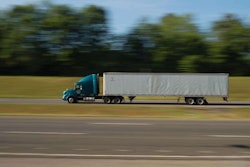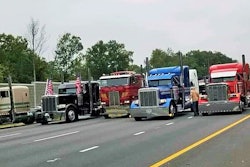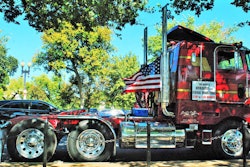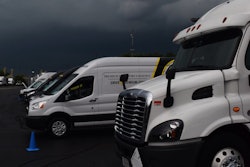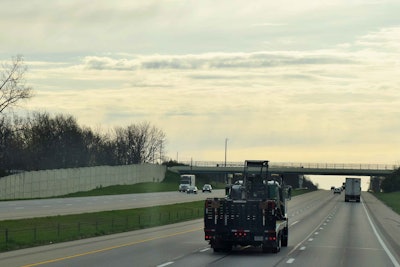
OOIDA Board Member and small fleet owner Monte Wiederhold, at least, feels that if it were to make it out of committee, through the House, through the Senate and to the President, “he’d sign it.”
Wiederhold wrote in response to the owner-operator quoted in my post last week about continuing antipathy to the ELD mandate and the many who hold out hope for a change to the regulation, in place now for just shy of seven months — four if you count the April 1 beginning of so-called “hard enforcement” with out of service orders for those not utilizing ELDs as the start date.
That owner-operator envisioned an executive order from President Trump to exempt small operations (with 8 or fewer trucks). OOIDA Board Member and small fleet owner Monte Wiederhold says that’s “not going to happen. … [Trump’s] transition team knew about the mandate and chose to do nothing about it, instead choosing to go along with ATA,” which supported the mandate.
H.R. 5948, though, should it get all the way to Trump’s desk, Wiederhold is more sanguine about when it comes to the President.
The legislation, introduced in May this year, would exempt operations with 10 or fewer power units from the mandate. Since being introduced, with a primary cosponsor in Democrat Collin Peterson of Minnesota, the bill has been referred to the Highways subcommittee but seen no further action but for a collection of 33 cosponsors, all Republicans. That reality probably makes it something of a bizarro-world piece of legislation in current party-politics dynamics. Nonetheless, maybe there’s hope to be drawn from its at least nominally bipartisan nature.

A little political “kum ba ya” on the ELD mandate opposition front, maybe, though I imagine there’s a long road ahead for it. …
Routine drug testing at scale houses?
The owner-operator Wiederhold was responding to also floated a few alternative active measures of sorts for DOT, assuming they’re truly after safety improvement. One of those ideas was the one in the subject at the top of this paragraph, something I truly felt was probably so outlandish an expansion in roadside intrusion to be beyond the pale, something that would never happen.
Turns out, before my time covering trucking (starting 12 years ago), and those of you who’ve been around much longer may well recall it from firsthand experience, says Wiederhold, there was such a program that OOIDA “fought vigorously against,” though it made its way into pilot stage, with a few states involved, before floundering.
Advocates for adding drug testing to standard inspection procedures at roadside, in Wiederhold’s view, operate “from the position that truckers don’t have any rights. … Seriously? Advocating for increased scrutiny at roadside scales is only advocating for an increase in revenue enhancement. I guarantee you that if the law enforcement presence is increased, under the guise of increasing safety,” the end result will not be more safety, just more violations for states to collect on.
Past OOIDA Board Member and owner-operator Steve Bixler, too, commenting under the post from last week, had a similar viewpoint: “The problems with unsafe truck drivers have little to do with drug use and much more to do with little or no training from the ‘puppy mill’ training schools that churn out drivers at astounding rates. When the powers that be wake the hell up and realize that truck driving is a skilled profession, to be done by highly trained professionals only, perhaps we will see trucking once again regain the respect it deserves from everyone.”

